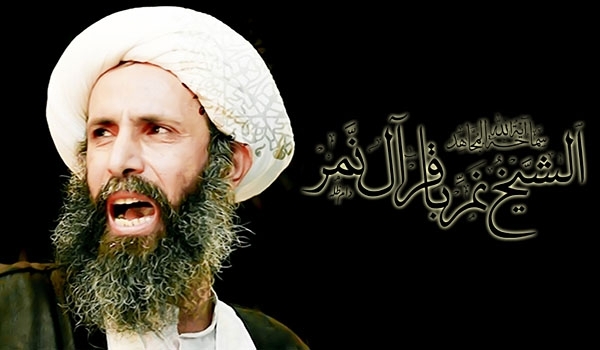
RNA - A memorial service is planned to be held in Berlin, Germany, on Tuesday by the Bahraini Cultural-Social Center, with political-religious figures and rights activists in attendance. An international committee set up to commemorate Sheikh Nimr has also announced January 2-8 as the Week of Commemorating Sheikh Nimr. The committee has called on all people who care for freedom and human dignity to hold rallies in front of Saudi embassies all over the world to condemn the Riyadh regime’s crime.
The Saudis executed Sheikh Nimr on January 2, 2016. The execution sparked international condemnations and angry protests in many countries. In the eyes of the international civil society, Sheikh Nimr was martyred for telling the truth, standing up against an oppressive regime, and defending freedom, justice, equality and human dignity.
Riyadh claims Sheikh Nimr was involved in a series of attacks carried out by Al-Qaeda from 2003-06. Shiites have always stood atop the list of Al-Qaeda's enemies, and the community has always been the prime target of Al-Qaeda and its other Wahhabi offshoots in and outside Saudi Arabia. At around the same time that Sheikh Nimr - the Shiite community's top religious leader in Saudi Arabia - was arrested, Shiite mosques came under attack by Al-Qaeda groups in Saudi Arabia and Kuwait. If you have any more doubts about the hostile relations between the two communities, just take a look at what ISIL and Al-Nusra - as two major Al-Qaeda offshoots - do to Shiite muslims in Iraq and Syria. However, the Saudi regime also detained hundreds of members of its Shia community after pro-democracy demonstrations in 2013. Several of those held were sentenced to death, including Sheikh Nimr. Riyadh describes the executions as just, which is rubbish:
The protests for democracy and human rights were peaceful and lawful. The protesters, including Sheikh Nimr, were not involved in terrorism activities and had no links with Al-Qaeda. True, Sheikh Nimr was publicly criticising the House of Saud and calling for elections. But he never called for violence.
Here, the West is not totally blameless for this eternal, condemnable crime either. The Saudi regime is but an extension of US-Israeli will in the region, and as such its anti-Shia, anti-democracy campaign has been but an expression of their Colonial-Zionist-Wahhabi legacy.
Tragic enough, for the sake of political correctness and geopolitical interests, human rights violations and executions in Saudi Arabia seldom make the mainstream media headlines in the West. A reminder why corporate media never bothered to even mention the first anniversary of Sheikh Nimr’s execution.
As is, the Global West and mainstream media continue to be part and parcel of the ongoing tyranny in Saudi Arabia, contribute to it, labor to defeat the opposition, and cooperate with the unelected regime when their interests intersect. Worse still, after a year of worldwide outrage, the regime is unlikely to face any rebuke from the UN Human Rights Council. On the contrary, the regime sits on the UN Human Rights Council, which is ridiculous.
Taken in total, the execution of Sheikh Nimr and other political prisoners has further stained the House of Saud’s troubling human rights record. In the prevailing environment and as per International Law, the people of Arabia, both Shiite and Sunni, can and should press ahead with their peaceful drive to regain their democratic rights and to keep on holding demonstrations to realize their lawful demands and aspirations.
No matter what regime is issuing the orders to execute political prisoners, whether a massive military power or a smaller client state, the people of Arabia can and should claim their right not to be oppressed and terrorised. Declaring eternal condemnation of Sheikh Nimr’s execution and eternal hostility to the United States and its Saudi vassals which are their real enemies seems to be their true hope.
847/940